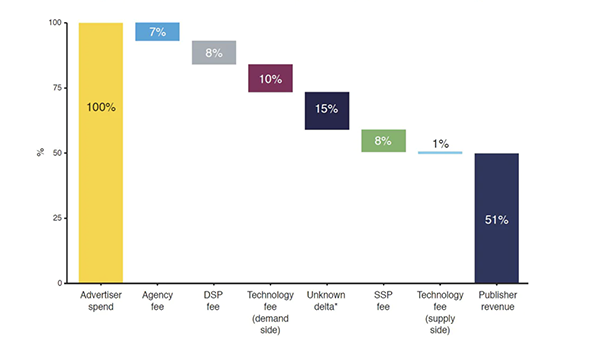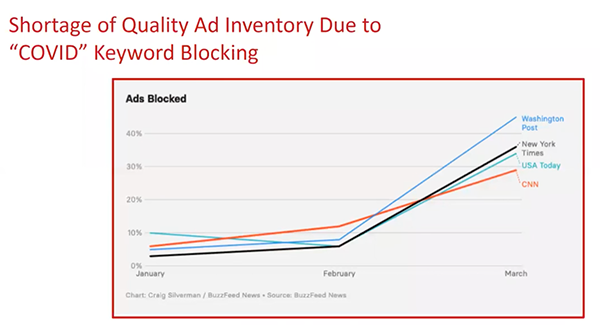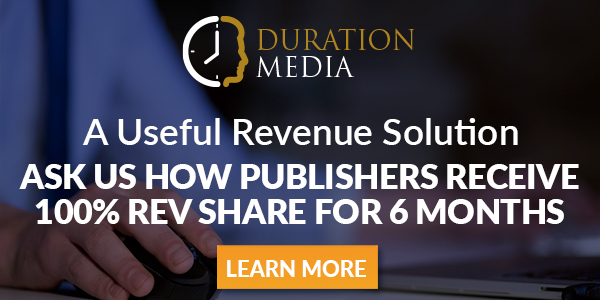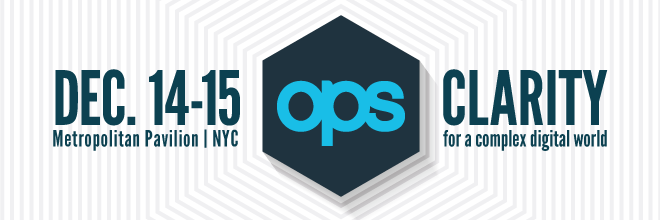 |
|||||||||||||||||
|
|||||||||||||||||
| Surprise, the Programmatic Supply Chain is Broken |

Image Source: ISBA Programmatic Supply Chain Transparency Study
|
| It turns out the programmatic supply chain is even more complex than we ever imagined and the flow of funds from advertiser to publisher is a dubious practice. If you’ve been following ad tech Twitter in the past week, then you'd know that that ISBA finally released their long-awaited Programmatic Supply Chain Transparency Study, highlighting that premium publishers receive only half of the ad spend from brands and 15% of that spend can't be accounted for at all. Are we still calling those invisible fees an ad tech tax? A recent blog post, written by MightyHive Co-Founder and CEO, Pete Kim, calls out the flaws within the ecosystem:
|
| While the news isn’t exactly novel, it’s the first time we’ve seen the full cycle of transactions between buyers and sellers in this light. As well, we’ve been talking about cleaning up and bringing more transparency to the supply chain since the early days of the automated process. But now seems as good a time as ever—while Coronavirus has ad spend on pause—to start working on a solution. First, the industry needs to tackle the discrepancies between DSP and SSP numbers. This is going to take the cooperation of buyers and sellers in developing a set of standards for data sharing to drive the much-needed transparency. It might also be time to consider some alternatives. Some industry experts have become cheerleaders for Supply Path Optimization as the solution for cutting out all of the clutter between buyer and seller to attain the best value for both parties. In other circles, there’s been much talk about the industry adopting blockchain-driven solutions that provide a “shared ledger technology” that can be used to minimize waste and improve programmatic operational efficiencies. If nothing else, the report should open up the direct dialogue between publishers and advertisers for better collaboration. |
| Criteo's SPARROW: A Finer Bird Than TURTLEDOVE? |
| Birds of a feather don’t always flock together, or something like that. CafeMedia’s Paul Bannister noticed that the Criteo team submitted a new proposal called SPARROW (Secure Private Advertising Remotely Run On Webserver) in response to TURTLEDOVE (Two Uncorrelated Requests, Then Locally-Executed Decision On Victory ). If you remember, TURTLEDOVE was part of Google’s proposal for a privacy-focused API that brings the auction and final decisioning out of the cloud and into the browser. SPARROW, on the other hand, introduces a gatekeeper (or independent party) moving the process from the browser to a centralized, but independently managed—yep, you guessed it—webserver. It also enables advertisers to retain campaign controls, such as frequency capping, a/b testing, fraud prevention, performance measurement, and so on. And it would allow for interest-based advertising outside of simply retargeting. |
| The introduction of a gatekeeper would take away ownership of these processes between buyer and seller from Google—something that was extremely questionable with TURTLEDOVE and Google’s Privacy Sandbox. The gatekeeper would be an internet-based service running interest group auctions and generating ad web bundles, instead of the browser as Google proposed. Removing the process from the browser would allow for more innovation and competition within the industry. That's why it's a good thing the proposal recommends that the gatekeeper remain independent from other partiers in the ad tech ecosystem and that their independence would be ensured by a legally binding agreement and appropriate auditing procedures. |
| The Crisis Inside the Crisis | ||

Image Source: 4A's Business as Unusual: Brand Safety & News in the Age of COVID-19 Webinar
|
||
| Yes, we all know that the advertising market has been decimated during the coronavirus pandemic. We aren’t traveling, dining out, buying cars, or much of anything else excluding TP. So, advertising budgets are in free fall. What’s also exacerbating the pain being felt by media, is that even marketers who are maintaining their ad campaigns are blocking ads from appearing adjacent to content about Coronavirus, COVID-19, or related topics such as PPEs, ventilators, vaccines, and the like. So-called keyword blocking is the tool being wielded, and it’s a bit like swatting flies with a sledgehammer. It certainly works, but at what cost? A recent report by research firm Lumen, documents why this is such a terrible idea. “Ads that run in newsbrands next to corona-related content get more attention, not less. When they appear next to these stories, people feel better about the brands who are advertising, not worse. Ads that make mention [of] the corona-crisis get more attention, and ads that don’t get less. Marketing managers who refuse to advertise in newsbrands are therefore missing a golden opportunity, and wasting company resources directing advertising investment to subpar, non-news, non-corona-related inventory. Try explaining that ‘abundance of caution’ to the CFO.” |
||
| “The majority of the internet is turning to a handful of trusted sources and we are seeing unprecedented consumer engagement. When it comes to how we’re monetizing, brands haven’t adjusted quickly enough,” said Allison Murphy, SVP–Ad Innovation, The New York Times, on a recent 4A’s webinar, “Business as Unusual: Brand Safety & News in the Age of COVID-19.” “Brand suitability is about how you’re a part of the consumer’s overall experience—it’s not just the content you’re around, but also the ads. Brand spending is not tracking with where relevance is as a whole.” Dozens, if not hundreds, of trusted and reliable sources of news and information, are in jeopardy of going out of business without the lifeblood of advertising that they so desperately not only need, but deserve. Without the free, independent, advertiser-supported media our very survival as a nation based upon adherence to the ideals set forth in the Constitution is at risk. Working with a partner like Duration Media, publishers can retain 100% of the revenue that they create from their supply of highly viewable impressions until the end of Q3. |
||
|
||
 |
| Coronavirus Agency Fallout Escalates |
| In issues of the Wrapper past, we talked a lot about Coronavirus wreaking havoc on ad spend and the impact that had on publishers’ pockets, along with the furloughs and layoffs that ensued. But, we haven’t talked quite as much about how hard agencies are being hit. Recent reports from Ad Age’s Datacenter revealed that 2019 was not a good year for agency growth and now, with the pandemic looming, things are far worse. Employment in advertising, public relations, and related services fell by 36,400 jobs in April. That's a big chop. |
| In an effort to cut costs, many agencies are reducing both junior staff and senior executives as they scramble to stay afloat. These numbers are unprecedented and may signal a much longer return to normalcy than expected for the industry. It could also give agencies time to reassess overall headcount as things open back up. Some critics worry about significant losses to the many strides made in diversity and inclusion within the industry over the years, as agencies seek to keep costs down. One trend we’re seeing is agencies taking bailouts in the form of loans, as Endeavor has done to firm up its reserves. They also sold their stake in Fornite and secured $100 million. Things are definitely looking pretty grim. |
| For Publisher Growth, Experience Matters |
| An idea that has emerged amid the Coronavirus pandemic, is that now is an excellent time for publishers to clean up processes and systems, and work on their strategies for coming out stronger on the other side of all of this. In a recent study, The Big Publisher Survey of 2020, Marfeel talked to publishers about the strategies and technologies they’re employing to grow their audiences and keep readers engaged—to ultimately lead to increased ad revenue. One key theme to emerge is that as publishers first focus on content to build out their audiences, the next step is improving user experience. The study found that 59% of publishers with between 1-10 million monthly sessions turn their focus to website experience to further increase growth. This includes improving their mobile experience and other technical enhancements. |
| During the pandemic, mobile usage of browsers, rather than apps, has significantly increased during the workday. This is a prime opportunity for publishers to improve their strategies for reaching organic audiences as consumers are hungry for information. How about combining the power of Progressive Web Apps (PWAs) and Google Accelerated Mobile Pages (AMP) into a single mobile web delivery solution to develop first-class, super speedy and engaging mobile websites? Many publishers report significantly increasing pageviews (some doubling overnight) and raising programmatic revenue by 10% and average revenue per user by 10% – 20%. AdMonsters Playbook: Mastering the Mobile Web has a gameplan for stepping up your mobile web monetization game. |










